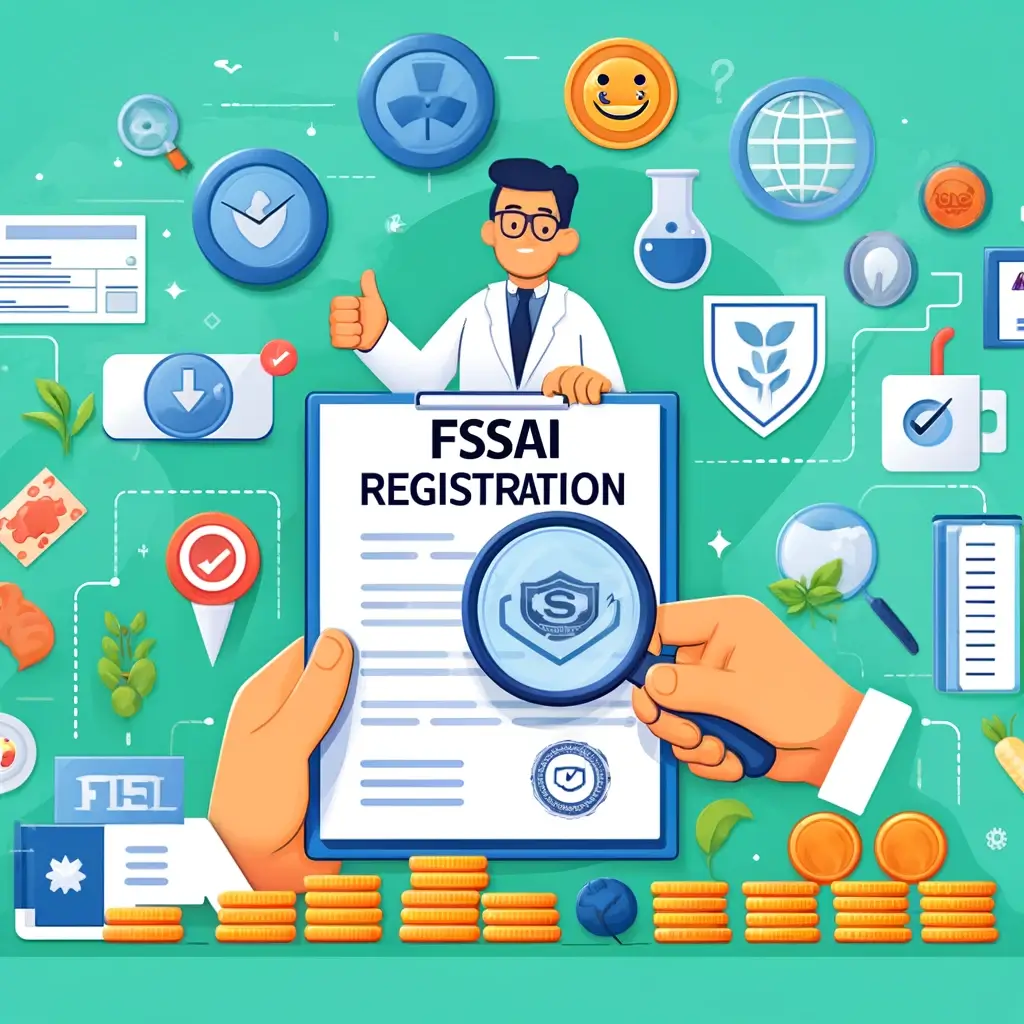
A Complete Guide to FSSAI Registration in India
Running a food business in India is a rewarding venture. But like all things, it comes with responsibilities, especially when it comes to ensuring food safety. One of the most important steps you need to take is getting your FSSAI registration. Sounds a bit overwhelming, doesn’t it? Don’t worry, we’ve got you covered. Let me walk you through the process and show how our team at LegalFinTax.com can help you sail through it smoothly.
What is FSSAI?
The Food Safety and Standards Authority of India (FSSAI) is an organization that safeguards the quality and safety of food across the country. Its primary role is to set guidelines for food products and regulate how they are manufactured, stored, distributed, and sold. In simple terms, FSSAI is like the nigrani (watchdog) of India’s food industry, ensuring that what we eat meets the highest safety standards.
Who Needs FSSAI Registration?
If you’re involved in anything related to food—whether you are a baniya (small shop owner), thelawala (street vendor), or running a chain of highend restaurants—you need FSSAI registration. It’s not just limited to big companies; even the smalltime mithaiwalas (sweet sellers) or homemade achaar (pickle) makers need it.
Types of FSSAI Registrations
There are different types of FSSAI registrations depending on the size of your business. Here’s a quick breakdown:
1. Basic FSSAI Registration:
This is for small businesses with a turnover of up to ₹12 lakhs. Ideal for small dhabas, home bakers, and small food manufacturers.
2. State FSSAI License:
For mediumsized businesses with a turnover between ₹12 lakhs and ₹20 crore, like midrange restaurants, catering services, and food manufacturers.
3. Central FSSAI License:
If your business has an annual turnover of more than ₹20 crore, or you’re involved in the import/export of food products, you need this. Large manufacturers and exporters usually fall under this category.
How to Get FSSAI Registration
I know you’re wondering, “How do I actually get registered?” Well, it’s a stepbystep process that requires a bit of patience but isn’t impossible. Here’s how to do it:
1. Figure Out Your Eligibility: Based on your turnover, figure out whether you need Basic, State, or Central registration.
2. Prepare the Documents: Gather all the necessary kagazaat (documents) like identity proof, address proof, and business ownership papers.
3. Submit the Application: Go to the FSSAI website and fill out the application form. Doublecheck all the details you’ve entered. It’s always better to be savdhaan (careful) and avoid mistakes.
4. Review and Inspection: Once submitted, the FSSAI officials will review your application. In some cases, they might conduct a physical inspection of your business premises.
5. Receive Your License: If all goes well, you’ll receive your FSSAI registration certificate. Remember to pradarshan (display) it at your place of business where customers can see it.
Why FSSAI Registration is Essential
You might be thinking, “Do I really need this?” The answer is a big yes! FSSAI registration isn’t just a farzi (fake) rule—it’s crucial for many reasons:
Legal Requirement: Without FSSAI registration, your food business is operating illegally. You could face jurmana (penalties), fines, or even closure of your business.
Builds Customer Trust: When customers see that you’re FSSAI registered, it adds to your vishwas (credibility). It shows them that your food is safe and of good quality.
Ensures Food Safety: Following FSSAI guidelines means your food business is following strict hygiene standards, ensuring the safety of your customers.
Renewal and Validity
Your FSSAI registration isn’t valid forever. Depending on the type of registration, it’s valid for one to five years. Don’t forget to renew it on time, or you may face penalties. And let’s be honest—no one wants the headache of unnecessary legal issues.
How LegalFinTax.com Can Help You
Now, I know all this information can seem like a lot to handle. This is where we at LegalFinTax.com come in. We specialize in making the entire process as sahaj (simple) and stressfree as possible for you. Here’s how we can help:
1. Eligibility Check: Not sure which registration category fits your business? We will analyze your business structure and guide you in selecting the correct category—be it Basic, State, or Central registration.
2. Document Assistance: Gathering documents can feel like a task, but we’ll provide you a list of what you need and help you prepare them with ease.
3. Application Submission: Our team will fill out and submit your FSSAI application on your behalf, ensuring every detail is accurate and theek (correct).
4. FollowUp: We’ll keep track of your application, follow up with the authorities, and keep you updated on its status. Plus, we will remind you when it’s time for renewal, so you never have to worry about missing deadlines.
5. Expert Guidance: Whether you’re just starting out or looking to expand, our team of experts can provide salah (advice) on how to comply with FSSAI rules in the long run.
Q.Who needs FSSAI registration?
Q.What are the types of FSSAI registrations?
Q.What documents do I need for FSSAI registration?
Q.How to apply for FSSAI registration?
Q.What is the validity period of FSSAI registration?
Q.Can FSSAI registration be transferred or modified?
Q.What happens if a food business operates without FSSAI registration?
Q.How can LegalFinTax.com help me?